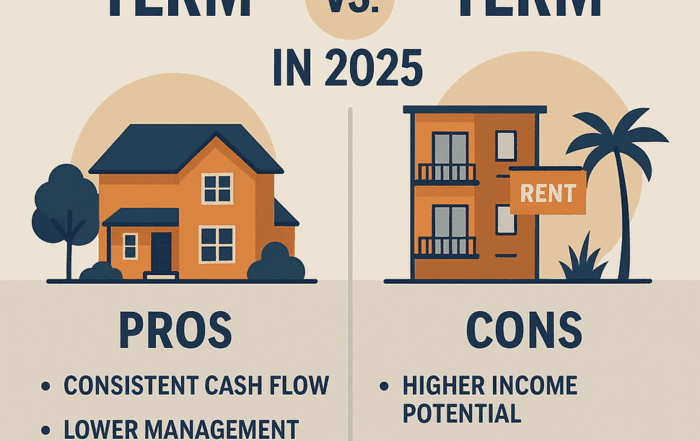Real Property Investments – Building Wealth Through Real Estate
After investing in rental properties for many years, I’ve learned that real property investments can be the key to building long-term wealth. But what exactly is a real property investment? And how can you get started without feeling like you need a PhD in real estate lingo? Let’s break it down in simple terms.
What is Real Property Anyway? Real property is just a fancy term for land and anything attached to it. That includes houses, apartment buildings, or even that shed in the backyard that looks like it might be haunted. It’s different from personal property like your car, phone, or a ceramic cat collection.
Real property investments are about owning physical real estate, whether it’s a single-family home, a duplex, or a multi-unit apartment complex. The goal? Make money—either through rent, property appreciation, or a combination of both.
Why Real Property Investments Matter People always need a place to live. That’s why investing in real property is often considered a reliable path to financial growth.
Here are a few reasons why it works:
-
Cash Flow: Renters pay you every month, providing a steady income stream.
-
Appreciation: Over time, properties tend to go up in value. This is called building equity.
-
Tax Benefits: Real estate ownership can offer tax advantages, such as depreciation deductions.
-
Leverage: You can borrow money to buy property, meaning you don’t need to pay the full price upfront.
-
Tangible Asset: Real estate is something you can see and improve.
Types of Real Property Investments Understanding your options is key:
-
Single-Family Homes: Simple and often easier to manage. Great for beginners.
-
Multi-Family Properties: Duplexes, triplexes, and apartments. More rental income but requires more management.
-
Vacation Rentals: Short-term rentals like those on Airbnb. Potential for high income but may require more time and effort.
-
Commercial Properties: Offices, retail spaces, and warehouses. Higher returns but often require larger investments.
-
Raw Land: Can appreciate in value or be developed, but may involve more risk and longer holding periods.
How to Start Investing in Real Property
-
Define Your Goal: Are you looking for monthly cash flow or long-term appreciation? Clarifying this helps guide your decisions.
-
Start Small: A single-family home can be a low-stress entry point.
-
Research the Market: Look into local demand, property values, and economic growth.
-
Understand Financing: Learn about loan options like conventional mortgages, FHA loans, and DSCR loans (which focus on property income rather than personal income).
-
Network: Connect with experienced investors, real estate agents, and property managers. Learning from others can save you time and money.
Evaluating a Potential Investment
-
Cash Flow: Calculate rental income minus expenses (mortgage, taxes, insurance, maintenance).
-
Cap Rate: Net operating income divided by property price. It helps compare different properties.
-
Appreciation Potential: Study the area’s development and housing trends.
-
Condition: Get a thorough inspection. Surprises like a bad roof or plumbing issues can hurt your profits.
Financing Real Property Investments
-
Conventional Loans: Standard mortgages, often requiring good credit and a down payment.
-
DSCR Loans: Evaluate property income, not personal income—a good option for investors.
-
FHA Loans: Require a lower down payment, often used for house hacking (living in one unit and renting the rest).
-
Hard Money Loans: Short-term, high-interest loans typically used for property flips.
-
Private Lenders: Personal loans from individuals. Flexible but may involve higher rates.
Managing Your Property
-
Self-Management: You handle everything, from finding tenants to fixing repairs.
-
Hire a Property Manager: They manage tenants, maintenance, and rent collection. This can reduce stress but comes with a fee.
Common Mistakes to Avoid
-
Skipping Market Research: A cheap property in a weak market can turn into a money drain.
-
Overpaying: Avoid emotional decisions—evaluate the numbers.
-
Underestimating Repairs: Always budget for unexpected costs.
-
Ignoring Vacancy Rates: Periods without tenants affect cash flow. Plan accordingly.
Tax Benefits for Property Owners
-
Depreciation: A deduction reflecting property wear and tear, reducing taxable income.
-
Mortgage Interest Deduction: Interest paid on loans can lower taxes.
-
1031 Exchange: Reinvest proceeds from a property sale into a new property to defer capital gains tax.
Learning from Experience Over the years, investors have found that consistent, well-researched property investments can provide both financial stability and long-term growth. There are no shortcuts, but the rewards can be substantial with patience and smart decisions.
Emerging Real Estate Markets
-
Growing Cities: Urban areas with expanding job markets often offer solid rental demand.
-
Suburban Growth: Areas near major cities are attracting renters seeking more space.
-
Tourist Hubs: Vacation destinations can offer high short-term rental returns.
Why Education Matters Understanding real property investments helps reduce risk and improve decision-making. Whether it’s reading books, attending workshops, or connecting with experienced investors, staying informed can lead to better outcomes.
Final Thoughts Real property investments are not a get-rich-quick scheme, but they are a proven path to building wealth. Start small, stay informed, and focus on long-term success.
Pick your expert. Book your free 15-minute consult now. We are here to help!
Our Top Articles
Can Buying Real Estate in Florida Help You With Immigration?
Jorge Vazquez2025-07-07T18:54:31+00:00July 7th, 2025|Comments Off on Can Buying Real Estate in Florida Help You With Immigration?
Can Buying Real Estate in Florida Help You With Immigration? So you’re wondering, “If I buy a couple rental [...]
Long-Term vs. Short-Term Rentals in 2025: Which Strategy Wins?
Jorge Vazquez2025-07-07T03:10:20+00:00July 7th, 2025|Comments Off on Long-Term vs. Short-Term Rentals in 2025: Which Strategy Wins?
In 2025, the real estate world feels a little like a game show. Behind door one: long-term rentals—steady, reliable, [...]
What Does Cap Rate Mean in Real Estate (And Why I Actually Use It)
Jorge Vazquez2025-07-05T13:43:14+00:00July 5th, 2025|Comments Off on What Does Cap Rate Mean in Real Estate (And Why I Actually Use It)
What Does Cap Rate Mean in Real Estate (And Why I Actually Use It) Alright, I’m gonna break this [...]
Property Profit Academy:
✔ Learn to buy properties with little to no money down.
✔ Build a $10M portfolio step by step.
✔ Master strategies like BRRRR and house hacking.








